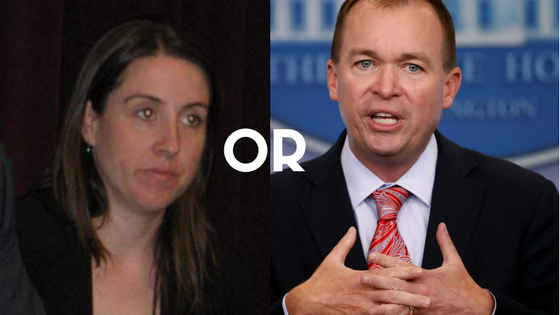A federal judge has denied a request for a preliminary injunction from Leandra English, who is suing the president of the United States because she believes she should be the rightful acting director of the Consumer Financial Protection Bureau.
This move leaves open the possibility of English filing an appeal of this decision to the Court of Appeals for the D.C. Circuit.
English filed the lawsuit against President Trump on Nov. 26, days after she was promoted to deputy director by Richard Cordray. Cordray promoted English in the hours before he resigned on Nov. 24. When Cordray announced his resignation, the president appointed Mick Mulvaney, the head of the White House’s Office of Management & Budget, to be acting director until a permanent replacement was nominated and confirmed.
English and Cordray believe the Dodd-Frank Wall Street Reform & Consumer Protection Act spell out that the deputy director should assume the responsibilities of the acting director, while the president is using the Federal Vacancies Reform Act as his legal basis for appointing Mulvaney.
The judge in this case had earlier denied a request for a temporary restraining order against Mulvaney’s appointment. A copy of the most recent ruling can be accessed here.
“The Court finds that English is not likely to succeed on the merits of her claims, nor is she likely to suffer irreparable harm absent the injunctive relief sought,” wrote Judge Timothy Kelly in his ruling. “Moreover, the balance of the equities and the public interest also weigh against granting the relief. Therefore, English has not met the exacting standard to obtain a preliminary injunction.”
Judge Kelly based his ruling largely on the fact that the Dodd-Frank Act says that the deputy director “shall” serve as director but that the president “may” use the Federal Vacancies Reform Act to override that decision. As well, because Congress did not expressly refer to vacancies when drafting the language in Dodd-Frank granting the deputy director authority to be acting director if the acting director is not available, but did use the word “vacancy” in other spots of the law, Judge Kelly is reading that Congress did not intend for the deputy director to assume the role of acting director in the event of the director’s resignation.









